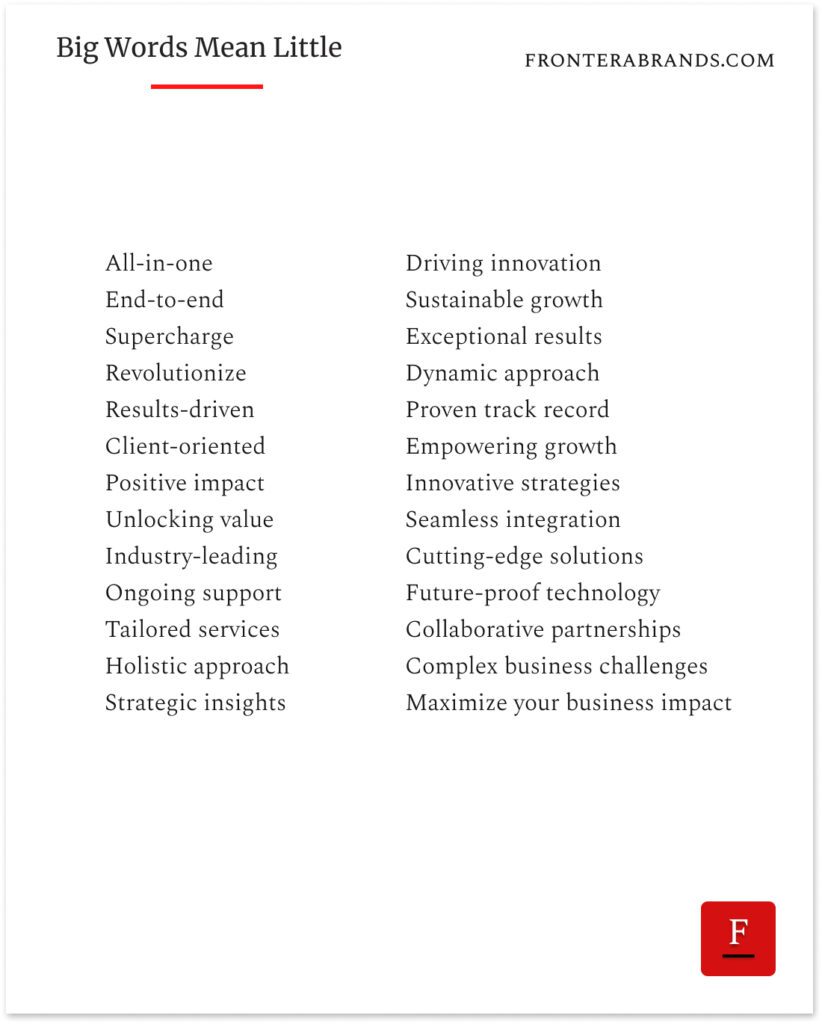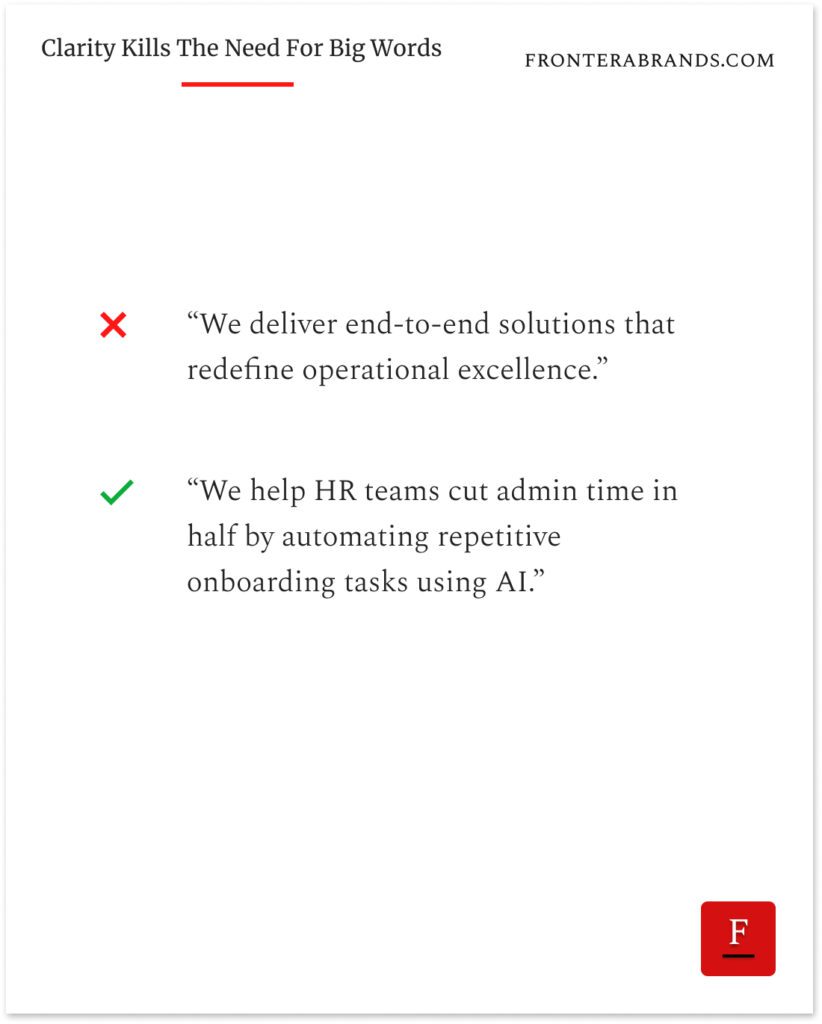♦️ Why big words mean so little in brand messaging
|
Oscar Wilde has a quote I like: “Don’t use big words. They mean so little.” But most B2B brands don’t follow Wilde’s advice. They love big words. They want to revolutionize stuff. They want to supercharge growth. But guess what these big words and phrases mean for buyers? Nothing. They are vague. They are disconnected from the language clients use to describe their problems. Nobody starts a day thinking, “We want to revolutionize our operations.” So reading it on a website doesn’t help buyers. It creates friction. Hence they become less likely to take the next action.
Because they know the reaction they’d get from buyers: a blank stare. Then why does that happen? Why do people feel it’s okay to use unnatural words to present their brand on their sites or ads? Well, the main reason is a lack of clarity. They lack clarity around the problem they solve and who they solve it for. They lack clarity around how they solve it differently. And they lack a point of view. So they try to hide behind big words. They invent a vision that should supposedly impress buyers. They claim loosely related outcomes without telling exactly how to deliver them. But big words can’t fix a weak positioning. They transfer employees’ lack of clarity to potential clients. When a brand truly has clarity around its positioning, the messaging needs no big words. It becomes easy to put plain words to work. And buyers get it without confusion.
If you use too many big words to explain what you do, you might be confusing your potential clients. Clarity kills the need for big words. So clarify your positioning, messaging, and point of view first. And use simple words to deliver big ideas. "We’re great at what we do. We just don’t know how to express it on our site."The result? Confused prospects. And confused prospects don’t buy. They scroll. They bounce. They forget. We help B2B brands find what makes them different and say it in a way that makes buyers think: “This is exactly what we need.” So your website and content don’t just sound better — they sell. Want to stop losing sales to weak messaging? Fill out this form, let's chat. You can reply to this email with your thoughts and feedback. I'd be happy to hear from you — I read and reply to all messages. And you can connect with me here on LinkedIn. Ozan |
Frontera
Join 10,000+ B2B founders getting the strategies of iconic brands.
Every business has dozens of problems at any given time. Even thriving ones. A new regulation comes up and you have to comply. You have to hire but can’t find the right candidate. Or your clients churn and you have to find out why. Being in business means dealing with problems. It’s the same for your potential clients. The problem your firm claims to solve is among a huge list of problems your buyers have. They have limited time and resources. But many problems to solve. So how do they decide...
The biggest mistake in B2B messaging is copying consumer brands. I know. Who doesn’t want to be inspirational like Nike? Who doesn’t want to influence buyers with a strong mission like Patagonia’s? But think about it. These are consumer brands. They sell commoditized products. A jacket is a jacket. No matter what brand you buy from, the product functionally does the same thing. So to differentiate themselves, consumer brands have to give intangible meaning to their tangible products. They...
In 1970, Listerine’s marketing department was feeling the heat. P&G had launched a new mouthwash brand as a competitor a few years before. They called it Scope. And they attacked Listerine’s obvious weakness — taste. Listerine burned like medicine. Consumers knew it. So Scope entered the market using taste as its differentiator. They claimed a mouthwash didn’t have to taste bad. And they were quickly gaining market share with aggressive ad campaigns. “Scope fights bad breath without giving...




